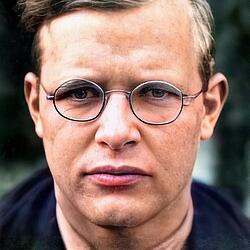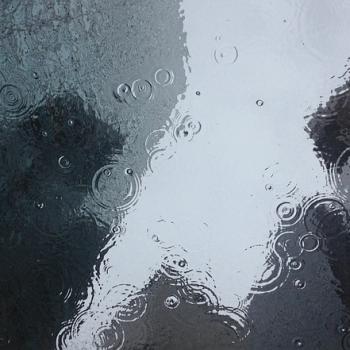I know there are people out there who say I'm a hard polytheist, though if it's defined as "each and every deity out there is always a separate entity" I can't quite agree. I do think that there are deities out there who are the same deity, like Thor and Thunor, for instance, who really are the same but whose name is being spoken in different languages and whose details are being appreciated from a slightly different angle. Yet that deity is not the same as Odin, nor Yemaya, nor Lug, nor Amaterasu Omikami. That's what I mean by "semi-squishy" polytheism. We're never going to prove anything about the nature of deity by any objective, scientific means, so I can only speak from my experiences of deity and the spirit world when I talk about these things.
I've heard a lot of what we think of as Celtic Reconstructionism today sprang from just a handful of folks talking to each other and digging deeper into Celtic lore. Can you tell us a bit about how this process evolved? Did you have a goal to create a new religious tradition?
Before any of it went online, I think most of the face-to-face stuff was happening on the east coast, and I wasn't privy to any of it because I live in the Pacific Northwest, so I can't really speak to that from my own experience. There are better people to ask, who were actually present at those discussions and the festivals where some of them took place. I hope that doesn't sound like I'm ducking the question -- I honestly don't know the details. I do know that Murtagh's late-1980s' talk on what "Celtic shamanism" might look like if it had actually existed was a seminal event for many people, and I've talked to him about it several times since I first met him. He's a fascinating guy and really sweet, and I know he's very happy and excited about all that's happened in the years since that presentation. He feels like it's a vindication of much of what he had been saying for so long.
Once we did get online, things moved a little more quickly, or at least made networking more possible. It was always a joy to share sources and insights with others who were working toward the same goals, even if we weren't all doing exactly the same thing. We talked about what we were reading and suggested books and articles to each other, along with talking about Celtic languages and cultures and how to sort through things to arrive at tentative conclusions about what we could know of ritual and beliefs in pre-Christian Celtic religions. We also had a very uphill fight to convince the larger Pagan community that Wicca was not actually Celtic; happily, that work has paid off and we don't see too many people making that claim anymore. I think people who are interested in Celtic Paganisms have becoming somewhat more discerning over the years.
I do think that, overall, there was a specific consciousness of working toward creating a new religious tradition from what we could discover about the past. When you're working with a spiritual tradition that left very little of its actual ritual materials to future generations, you do need to start some things anew and it wouldn't be accurate to say that CR is exactly what any of the previous cultures were doing. In my opinion, it's a reconstruction because we don't have a lot of pre-Christian material to fall back on and revive, and we're having to fill in the often very large gaps with what we find in other related cultures and from what works for us now, as a post-modern society with global communications.
We as individuals wanted at some point to have groups to work with, rituals to work with, and some general ideas of what CR actually encompassed as opposed to what it did not. Those ideas and opinions have been evolving over time, as people add more to the base of knowledge that we're working from. It's been good to see people finally working on writing material with a CR community in mind. I know we'll be seeing more of it in coming years, as CR gets more exposure in the larger Pagan community and material becomes more easily available for people to just pick up and work with as opposed to having to do it all yourself from scratch. The CR FAQ project was a major effort and has, I think, helped somewhat with folks moving in that direction. I still see people who have read it, though, and come away thinking that we're monolithic and that it has to be absolutely traditional with nothing at all modern in it. I don't know any group or individual anywhere who's doing CR with absolutely nothing modern in it; I'd be extremely skeptical of anyone who claimed they were.
In starting up the online discussion groups of PODS Celtic in the Fido BBS days, and Nemeton in the very early days of what subsequently became the web, I was actually looking for my peers or, even better, for people who might know more than I did, rather than trying to deliberately start a tradition. I eventually realized that if I couldn't find them, I'd have to then share what I knew so that people could examine the material for themselves and become my peers. I really did feel inadequate to the task, and I often still do, because there's just so much still to learn and I'm only grasping a fragment of what's out there. There were a few people at the time who were on a similar level of knowledge -- a little more or a little less than I had -- and that was a great joy to discover. We could help each other grow. It meant I no longer felt I was talking into a vacuum, and these resources gave us ways to encourage each other and allowed others into the dialogue who would never have had the chance if it had remained a localized offline process. Ultimately, I think the process has been a success, because now there are a lot of good, intelligent folks who are pursuing the path and who are contributing to the community who wouldn't be out there if we hadn't laid the groundwork in the late-80s and early-90s.




